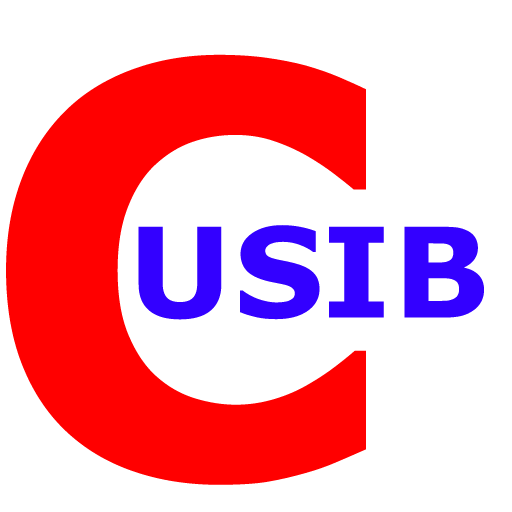FOR IMMEDIATE RELEASE

August 1, 2014
The independent and nonpartisan Committee for U.S. International Broadcasting (CUSIB – cusib.org) issued a statement condemning the the Broadcasting Board of Governors (BBG) Special Committee on the Future of Shortwave Broadcasting report, inappropriately titled “To Be Where the Audience Is,” for targeting poor and vulnerable radio audiences for cuts while the BBG fails to eliminate millions of dollars in wasteful spending by its behemoth and constantly growing bureaucracy in the International Broadcasting Bureau (IBB).
The CUSIB Advisory Board member, Victor Ashe, who is a former BBG Governor, former U.S. Ambassador to Poland and former mayor of Knoxville, TN, said in a statement about “To Be Where The Audience Is — Report Of The Broadcasting Board of Governors Special Committee On The Future Of Shortwave Broadcasting”:
“This plan guts our ability as a nation to do the job we must do.”
CUSIB founder and Executive Director Ann Noonan and CUSIB co-founder Ted Lipien issued the following statement:
“While we do not question the need for adjusting shortwave radio transmissions to changing audience preferences and strongly support digital media expansion as part of a carefully-designed multimedia program delivery strategy, the Committee for U.S. International Broadcasting (CUSIB – cusib.org) strongly disagrees with the Broadcasting Board of Governors’ (BBG) all-consuming focus to cut radio to the poorest and most underprivileged groups to achieve moderate savings, while hundreds of millions of dollars are being wasted and mismanaged by the BBG’s International Broadcasting Bureau (IBB).
CUSIB’s recommendation to the Committee to broaden its scope and to look holistically and comprehensively on how IBB spends U.S. taxpayers’ money was ignored.
The failure of the BBG to focus first and foremost on reforming its overblown and dysfunctional bureaucracy has prompted us to call earlier on the Chair of the BBG Shortwave Committee Mr. Matt Armstrong to step aside. We agree that the Internet is the new global superpower for millions of people, but we take issue with Mr. Armstrong’s statement that “You can’t censor the Internet.”
CUSIB advocates for hundreds of millions of people who don’t have Internet access or are too poor to afford it. We also advocate for those who can’t see Voice of America (VOA), Radio Free Asia (RFA), Radio Free Europe / Radio Liberty (RFE/RL), Office of Cuba Broadcasting (OCB) and Middle East Broadcasting Networks’ news websites because of government filtering and censorship. They should not be forgotten, nor can most of them use Internet censorship circumvention tools being promoted by the BBG.
The Committee also finds it disturbing that the BBG plans to cut medium wave (AM) transmissions of Radio Free Europe / Radio Liberty (RFE/RL) to Belarus, the last dictatorship in Europe.
We call on the BBG Board to conduct first a thorough reform of the IBB and to make decisions on shortwave transmissions after eliminating waste and mismanagement, not before.
As a public broadcaster funded by U.S. taxpayers, the BBG can’t ignore billions of people who live on a few dollars a day without Internet access in countries without free or developed media while the BBG/IBB bureaucracy expands by leaps and bounds and wastes money on such projects as conducting a public opinion survey among the intimidated population in Russia-annexed and occupied Crimea.”
CUSIB agrees with Victor Goonetilleke, a native of Sri Lanka and an educator and radio engineer, who sent us these comments:
“In the face of Chinese jamming of even English-language radio broadcasts, it appears that the U.S. Broadcasting Board of Governors has also decided to abandon ship. Today, Israel and American policies are being blasted to bits in social media and in international radio programs.”
Where is America and where is its voice? For the first time in many years, I feel that we are getting a one-sided view of the world.”
(…)
“Doesn’t America have the means to say a proper good bye? Does the BBG care at all and what they would save by cutting shortwave? Is it an insignificant saving which the VOA cannot afford to speak to the world when billions are thrown away at other projects, even going to war and supporting conflicts. (…) What the BBG did was akin to breaking diplomatic relations with Asia and the English speaking world. ”
(…)
“You really have to walk along a dusty road with fear gripping you wondering what is happening in your own country to know what this means. There are no landlines or broadband, mobile phones or an Internet service provider. All you might have access to is a small radio.”
(…)
“If international broadcasting was meant to build public relations for the U.S. with the world, earn respect, make people understand the American way of life, its policies and interests — the Broadcasting Board of Governors’ (BBG) executives in charge of the Voice of America (VOA) have done everything wrong.
(…)
The man who [at] his inauguration reached out to those people listening huddled round a radio in some forgotten corner of the world. His Administration has been let down by the Broadcasting Board of Governors.
Does President Obama even know what the BBG is doing?“
For further information, please contact:
Ann Noonan, co-founder and Executive Director
Tel. 646-251-6069
Ted Lipien, co-founder and Director
Tel. 415-793-1642
The Committee for U.S. International Broadcasting (CUSIB – cusib.org) is an independent, nongovernmental organization which supports free flow of uncensored news from the United States to countries without free media.

